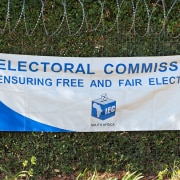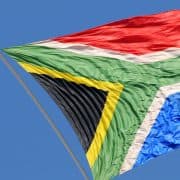|
Getting your Trinity Audio player ready...
|
By Mandisa Nyathi
First published on Mail&Guardian
The Independent Electoral Commission of South Africa (IEC) says the Political Party Funding Act needs more power to enable the commission to follow up on parties that do not disclose donations.
IEC party funding chief executive George Mahlangu said the Act in its current form does not enable the commission to get political parties to account for the donations they receive.
He said that unless a disgruntled party member alerts the commission about a donation made to a party, the IEC does not have the ability to know if the party has failed to disclose its funding. “A party’s disgruntled member needs to bring an undisclosed complaint to us with prima facie evidence. We suspect that there are donations that are not legit that come in the form of cash, in the form of EFT, but the political party decided to keep mum about it.”
Mahlangu said the commission is investigating such a case where a member from a certain party brought prima facie evidence, which has enabled the commission to investigate that matter. “If found guilty, the party will be fined hefty fines [from R40 000 to R1-million] for going against the party [funding] Act. The accounting officer will be jailed for allowing the party to lie about the donations received.”
But, he added, the IEC cannot challenge the Act. “The onus is on the public to challenge the Act, should they feel uncomfortable about the Act.”
The Act came into effect in 2018 and requires that political parties registered with the IEC disclose donations above R100 000. Parties must submit quarterly and annual audited financial statements to the commission. All donations less than the threshold are submitted in the annual audited financial statements.
But parties simply circumnavigate public disclosure by telling supporters to donate under R100 000.
In July, during a media briefing, Economic Freedom Fighter leader Julius Malema said the EFF’s donors must donate gifts that are less than R100 000 to prevent efforts by “the Oppenheimers” to stop people funding the party.
“Now that they do not have control over the EFF, they pass a law and say that there is a law called political funding; we want to know who is financing these people?” Malema said at the time. “When you want to donate more than R100 000, we tell you don’t do that; there is a white man here called Oppenheimer who is waiting for that report and wanting to know who is financing the EFF so that person can be chased and destroyed, we are not going to allow it.”
The EFF only declared donations in the third quarter of the 2021-22 financial year.
The African National Congress has said it wants the Act to be amended and the threshold increased to R250 000 or R500 000 a year.
In September, the IEC announced that the ANC, ActionSA, Democratic Alliance and Build One South Africa declared a total of R58 365 321.09.
The DA declared R22 901 161.09, the ANC R20-million and ActionSA R12 164 160.
Build One SA declared R2-million, plus a late declaration of R1.3-million.
In support of the IEC’s call of strengthening the Act, non-profit organisation My Vote Counts approached the Western Cape high court to have the funding Act amended to force all parties to disclose all private donations, including those below the R100 000 threshold.
My Vote Counts, in its papers, argues that the Act fails to “adequately impose controls on the private funding of political parties”, and that it does not safeguard against corruption and state capture.
“Without full transparency and full disclosure of all private donations to political parties, voters are unable properly to assess the influence exerted by private interests over political parties and cast an informed vote,” it said.








